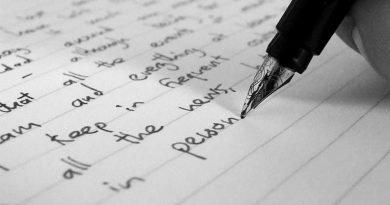Taking an exam is simply a skill, and, like any other skill, it is perfectly possible to learn and improve on this skill. For many, it is built up to be a stressful and worrying time and this is not the ideal frame of mind to be in while trying to complete a task that could be very important for your career and future. So here are 7 steps to take to best prepare you to be able to give the perfect exam performance.
Gather your Notes:
It’s important to get together all of your course notes. Now good note-taking is a key skill in itself, and organization is a large part of that. If your notes are in good order and you can easily find the ones you need for that part of your study as any time spent organizing and even the time finding your notes is the time not studying. You should ensure that your notes are organized into categories and use paper clips or marks to indicate the pages that are important to your study. Take the notes that are important and copy them into new documents as even the simple act of copying them out and writing by hand can aid in committing these facts to memory. If you find your notes are not detailed enough or are difficult to understand then it’s a good lesson to try and improve on your note-taking skills for the next semester so that you can have an easier study plan next time around.
Organize a Study Plan for Exam:
It’s important to devise a detailed and well thought out study plan. You need to take into account how long you have before the exam date and split up what to study and how many times to revisit each section. You need to combine this with how many other subjects you are studying and decide how much time to devote to each and this decision will be based on how important each exam is to your overall success, some may have more academic points attributed to them or one may be in the subject you intend to later major in. You will also need to be realistic in how much time is available to you, firstly you are only human and will get tired, so rest breaks and even days off are essential to efficient studying. You will, no doubt, have other commitments in life, such as a part-time job, family commitments and even a social life, it may be exam season but all work and no play makes Jack (or Jill) a dull boy (or girl). We would ideally like to avoid burn-out, this is the aim.
Study Past & Sample Papers:
One sure way to get a feel for what the exams may offer is to get and take mock exams using past papers or even some subjects have sample papers available. These are usually freely available in your institution’s library and can be used to see how ready you are for the exam. You will also get an idea of what subjects tend to come up in the exam and how often these are changed, what format the questions come in and this way you can practice your timing as well as ensuring you are hitting the right subjects in your study plan.
Get Extra Tutoring:
If you are struggling in one subject area then why not consider extra tutoring? There are often learning support departments at colleges that can offer study technique classes for free. Or post-graduate students will often give tuition for a fee and this can be useful if you can find one that works in your specific subject area. It’s never a bad idea to seek help, we all need it from time to time and self-improvement can never be a bad thing. There are also many Professional Exam Tutoring websites where it’s easy to find a good tutor.
Concentrate on your Weaknesses
It’s tempting to study the parts of the curriculum that you are most confident in and comfortable with. But this is not the most effective way to increase your score on exams. It will be a tougher ask but you can make much greater gains working on your weak parts as these will undoubtedly have more potential exam points up for grabs meaning that it makes more sense to concentrate on them. Identify these weaknesses and give them extra blocks of time in your study plan and then test your knowledge periodically to monitor your improvement.
Mimic Exam Conditions For Study
When studying it is important to get as close to exam conditions as possible, this is why some sports teams train with fake stadium noise, but your issue is the opposite. Exams are quiet, you are not allowed music, phones or TV in the exam room, so don’t have them in your study room. If you cannot avoid these distractions at home then why not take your study into college, there are usually plenty of quiet study rooms or space in the library for study. This makes you exam ready and if nothing else the lack of distractions will make your preparations more effective.
G
et Enough Rest & Personally Prepare On the Day
Make sure you don’t stay up late the night before an exam, even if it is for extra study, let’s face it, if you don’t know it by now it’s probably too late and the tiredness will hinder you more than any last-minute cramming will help you. Get up in good time to be early for the exam, aim to arrive at least 15 minutes early and be sure to know the route and, if you take public transport, check the bus or train company websites for any planned works or delays on the day of the exam. Be sure to eat breakfast to avoid being hungry during the test as this can really take your concentration away, and bring enough, but not too much water as you may not be allowed a bathroom break mid-exam.




